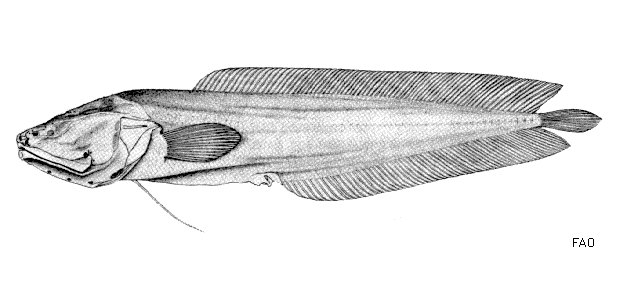| Dinematichthyidae (Viviparous brotula) |
| 5.8 cm SL (male/unsexed) |
|
demersal; freshwater; brackish |
| South America: Galapagos Islands. Apparently endemic to the fresh- and brackishwater of the cave systems on the Santa Cruz Island, where it is replaced by O. deroyi in the marine environment. |
|
Dorsal soft rays (total): 69-74; Anal soft rays: 54-62. This species has the following characters: Dorsal fin rays 69-76, anal fin rays 54-62; outer
pseudoclasper with a long spine-like supporter; inner pseudoclasper very short, anteriorly inclined; opercular spine with a single, sharp tip; cheeks naked; body not pigmented; upper preopercular pore absent; caudal fin rays 11-12 (Ref. 57883). |
| Uncommon species (Ref. 34024). Inhabits rocky crevices; cave species (Ref. 27297). |
|
Endangered (EN); Date assessed: 13 September 2022 (B1ab(iii)+2ab(iii)) Ref. (130435)
|
| harmless |
Source and more info: www.fishbase.org. For personal, classroom, and other internal use only. Not for publication.
